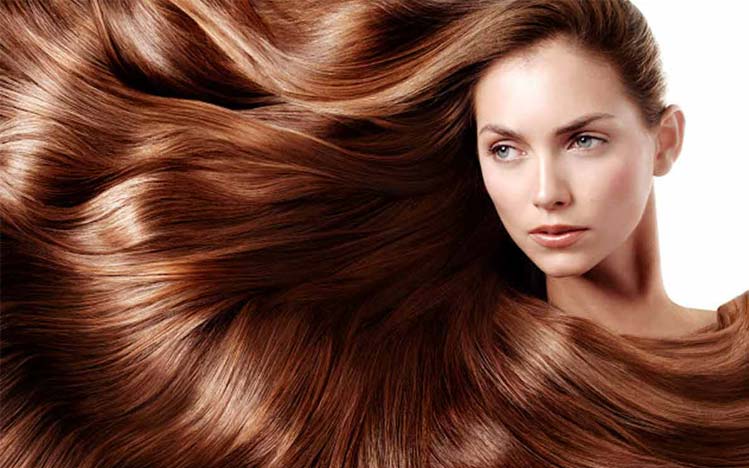Catie's Blog
Healthy Hair
NUTRITIOUSLY HEALTHY HAIR + ANECDOTES:
A healthy hair follicle (singular) grows about one centimeter per month and continues to grow for two to six years. This is called the anagen or growth phase. Ninety percent of the hairs on your head are in this phase. The other ten percent are in the catagen, or transition phase. These hairs hang around for a few weeks before the follicle shrinks and the hair is shed. The follicle then goes through a Telogen, or resting phrase before the cycle starts anew. Hopefully if all goes well.
As we all know, for some people, their hairs tend to get stuck in this resting phrase for the rest of their adult life. This loss of hair is known as alopecia, or baldness.
THE HAIR LOSS FACTS:
Too much washing will not lead to hair loss.
It is perfectly normal to lose around 50 to 100 hairs from your head per day.
Hats do not make you “go bald”, neither do wigs for that matter.
Brushing your hair a 100 times may help improve blood circulation to your follicles.
MAIN HAIR LOSS CAUSES:
Genetics is one of the biggest causes of hair loss. Hormonal imbalance is said to be the biggest factor in genetic hair loss. In men: the male hormone androgen binds with an enzyme in the hair follicle, creating DHT, which keeps the follicle from restarting the growth phase.
The female hormone, estrogen, can also cause hair loss and many women can suffer significant hair loss when using birth control pill.
Androgen alopecia, or male pattern baldness, affects 70 percent of all men sometime in their life. Women also are known to suffer from pattern baldness, but in a much smaller percentage.
Many women also suffer from often short term hair loss after giving birth. This is caused by the caused by the hormonal changes occurring within the body of the new mother.
Stress can cause a lot of bodily problems, hair loss being one of them. While hair loss caused by stress is only temporary, it can be the trigger for the onset of permanent, genetically based hair loss.
An unhealthy diet can also cause hair loss, especially a diet that is high in saturated fat and lacking in hair friendly vitamins and minerals. A healthy hair follicle needs thins like iron, zinc, protein, and vitamin B6 in order to stay healthy.
Drinking too much coffee, tea or alcohol, or eating too many processed, fried, spicy, greasy or sour foods can reduce the amount of nutrients that a hair follicle is getting.
Certain drugs, medication, or treatments like chemotherapy can cause hair loss. These are usually temporary and your hair grows back once you stop taking the drugs or getting the treatment.
Some fungal infections like ringworm or the STD: Treponema pallidum can cause hair loss. Dandruff, however, does not.
Hair loss could be a symptom of an underlying disease such as diabetes, or lupus.
Getting old is another way to suffer from hair loss. Losing hair is a side effect of the ageing process.
NATURAL HAIR LOSS TREATMENTS:
Treating hair loss is dependent upon the cause. Simply switching medications, or ending treatments can treat a lot of hair loss cases. Diagnosing and treating the ailment can cure hair loss caused by infection or disease. Time and patience will usually take care of hair loss caused by stress or giving birth and switching birth control pills might help woman suffering hair loss caused by hormonal imbalance. Genetic hair loss however, is a little bit harder of a problem to tackle
Here are some possible treatments for genetically based hair loss:
1.) Proper diet and exercise will help keep your hormones in check and stave off androgen alopecia.
2.) Choosing a hair stylist might help you hide your thinning hair or consider having hair transplants, a wigs or even inventive weaving methods.
Healthy Hair Tips:
1.) Lemon juice, gently rubbed on and then left in for 15-20 minutes will give super clean, dandruff free hair. A clean scalp is essential for healthy looking hair.
2.) Get you daily dose of calcium from your foods. Sesame seeds, figs, Kale, Asparagus, and Salmon are high in calcium. Take a whole food source of calcium supplement as many calcium supplements from chalk, shells, and rocks have been linked to instant heart attacks and strokes in women.
3.) A shampoo made from equal parts alma juice and lime juice as said to stimulate hair growth and prevent loss. Alma is also said to help with graying hair as well as promote thick, luxurious black hair.
4.) Use only natural thickening shampoos and avoid harsh weather as much as possible.
5.) Polysaturated (sunflower) oils and foods rich in vitamin B (brown rice, bananas) will help with dry hair.
6.) Use natural hair conditioners like Henna and Mehendi.
HAIR DIAGNOSIS VIA SYMPTOMS:
- Your hair knows and can tell you what is wrong in your body.
- If you have excessive hair loss, check your thyroid gland. Also, make sure that you get enough vitamins and minerals.
- If your hair is fragile, check your bowels.
- If your hair grows very slowly, your nervous system is very weak.
- If you started getting gray hair fast, check your heart and pancreas. Another reason could be a hormonal dysfunction.
- If you get a few grey strands of hair, it could be a genetic defect – dysfunction of hair nerve.
- The reasons for getting grey hair at a young age are high acidity, getting a lot of salt with foods, diabetes, stress, constant fatigue, lack of enzymes, disorder of sex functions and poor blood circulation in your heart
- A cause of getting half of your hair or all of your hair grey is severe stress or shock.
- If your hair is very brittle, you have not been getting optimal nutrition for a long time.
- If a woman gets bald spots on her temples, it could be early climax, dysmenorrheal and hormonal dysfunction.
- If you had light hair and it started getting dark fast, check your liver and gall bladder.
- If your hair got dark only on the roots, it could be a head skin disease.
- The cause of baldness could be rheumatism or gout.
- If you got round bald spots, you have serious anemia.
- If you have dandruff, limit the amount of salt, sugar, coffee and dairy in your diet.




